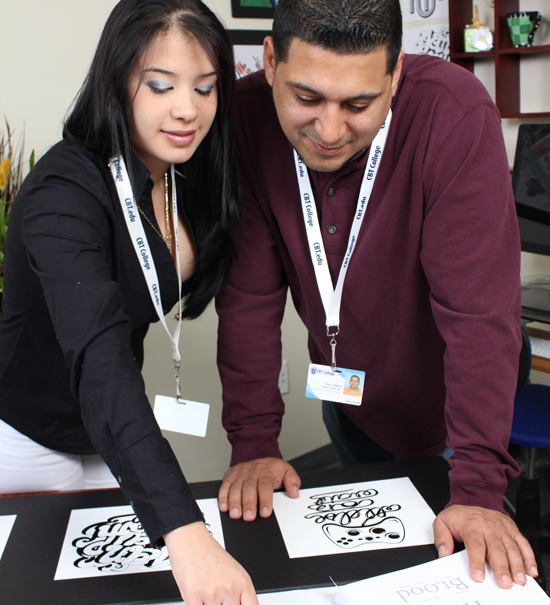
One of the most fascinating aspects of the award-winning TV series, Mad Men is the relationship between artists and copywriters as they create catchy sales campaigns to win advertising accounts. While hand-drawn art copy is still used and valued, the world of advertising is now a combination of professional Graphic Designers and their copywriting counterparts. Graphic Design is a rising professional field in which several strengths must co-exist for an individual to stand out. The most successful graphic designers are usually:
- motivated
- well educated
- technically savvy
- talented
- adept at communicating with their clients
Disciplined Flexibility – A Graphic Design Oxymoron?
The life of a graphic designer can feel dichotomous at times – a constant pull between artistic license and remaining within the boundaries of a client’s wishes and their audience’s sensitivities. You must be able to think outside the box, but have the discipline to stay on top of your clients’ requests, regulations, and deadlines. You have to be sensitive enough to intuit your clients’ needs, yet thick-skinned enough to hear their criticism without taking offense. So what happens in the mind of great graphic designers when they have to design a new logo, create art to accompany a sales slogan, or re-design the 10th banner-sample for a client’s existing website?
Best Resources for Professional Graphic Designers
Many people think that talent is enough; alas, it is not! As mentioned above, graphic designers have to excel in a variety of areas in order to be recognized and respected at the professional level.
- Education and Theory. The right graphic design education is important for two reasons; history/ design theory and a respectable resume. Being a graphic designer without a degree in the field is like becoming a professional chef without a culinary school certificate. Where there was a time when talent might have trumped a “book eduction,” these days you’ll find it difficult to land the best and highest paying jobs without a stamp-of-approval from an accredited school. Prospective employers and clients like to see a finite certificate or degree that signifies you’ve learned the core elements of your field and had the commitment and drive to finish a professional program. Plus, an education in graphic design will serve as a well-rounded foundation for your future career.
- GAG Handbook. GAG stands for The Graphic Artists Guild. This organization is to graphic designers what the Screen Actors Guild (SAG) is to the freelance TV and movie community. They regularly publicize a book called the Graphic Artists Guild Handbook: Pricing & Ethical Guidelines. Once you’re establishing yourself in the professional scene, GAG’s handbook will help you understand complex legal rights, copyright laws, and can help you learn how to negotiate the best wages and terms for future contracts. It even includes copies of sample contracts.
- Keyword Trackers. Since the majority of your work will probably be done for websites, blogs, and other internet-based marketing, an in-depth knowledge of search engine optimization (SEO) can be vital in producing the best ideas and copy for your clients. This is especially true if you are cultivating small business clients who don’t have a clue how internet search engines work and/or why keywords matter. If you are just starting out, FREE is probably one of your very favorite words in which case Free Keywords will be one of your best resources for researching – and tracking – keyword trends.
- Vandelay Web Design Blog. As long as you are beefing up your SEO skills, it’s a good idea to get social media friendly as well. In addition to a wealth of social media-friendly articles, Vandelay Design’s Blog offers additional resource lists, web design tips, as well as a wide array of stock resources for designers.
- Computer Arts. To be successful in the world of design, you must remain on the cutting edge of design trends, technological advancements, and new programming tools. One of the best-selling international magazine resources for computer design is Computer Arts. This online resource includes tutorials on multiple topics, tips and tricks for Photoshop and Illustrator, and has enough images, stories, and everything-else-about-graphic-design that you won’t want to miss it. Computer Arts is inspirational from start to finish.
With a good education, a well rounded resource tool kit, and the right amount of motivation and talent, you will be able to cut through the ranks of average designers and make your mark. Hopefully, these resources will take you on your own journey to Mad Men – or Mad Women – success, where you will be a standard setter for future graphic designers.
Where do you go for your artistic or technical inspiration? What resources do you pull from to create work amazing enough to keep your customers coming back for more? We’re interested in knowing what inspires your graphic design career.